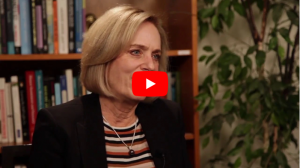How Mindfulness Can Save Your Relationship
 In my recent blog, “The Many Benefits of Mindfulness,” I outlined how a mindfulness practice has been scientifically proven to improve our mental and physical health. The win-win effects of incorporating mindfulness into your life just seem to keep growing and expanding, interweaving into every area of our lives. Mindfulness practice doesn’t just enhance our individual well-being. In fact, it’s now being shown to have a positive impact on interpersonal relationships. A 2004 University of North Carolina study of “relative happy, nondistressed couples” showed that couples who practiced mindfulness saw improvements to their “relationship happiness.” In addition, they experienced healthier levels of “relationship stress, stress coping efficacy, and overall stress.”
In my recent blog, “The Many Benefits of Mindfulness,” I outlined how a mindfulness practice has been scientifically proven to improve our mental and physical health. The win-win effects of incorporating mindfulness into your life just seem to keep growing and expanding, interweaving into every area of our lives. Mindfulness practice doesn’t just enhance our individual well-being. In fact, it’s now being shown to have a positive impact on interpersonal relationships. A 2004 University of North Carolina study of “relative happy, nondistressed couples” showed that couples who practiced mindfulness saw improvements to their “relationship happiness.” In addition, they experienced healthier levels of “relationship stress, stress coping efficacy, and overall stress.”Mindfulness is a skill we can acquire, a compassionate practice we can integrate into our lives, allowing us to have an easy, always available, method to calm ourselves down when distressed. Mindfulness increases our awareness of what we are experiencing and allows us the space to decide how we want to act in our daily lives. It is easy to picture how enhancing these abilities within ourselves would lead to better outcomes in our relationships.
Imagine, for example, being triggered by your partner. Picture yourself in that heated moment when everything just feels overwhelmingly wrong: anger is bubbling over inside you, combined with intense distress. Now imagine being able to feel your emotions without reacting in the moment. Imagine observing the emotions and thoughts that are arising without getting caught up in them — being able to keep your emotional balance. This allows you to think about how you would like to respond in the situation vs. how you would instinctively react. Mindfulness is a means by which we can get to know our thoughts and stay connected to our feelings without falling victim to inappropriate, intense reactions based on unresolved issues from our past.
When it comes to leftover emotional pain from our earliest relationships, no one will trigger us like our romantic partner. How many times have you found yourself saying something in a moment of distress that you later deeply regret? How is it we find ourselves lashing out at the person we value the most? Ironically, our closest relationships tend to present us with the biggest challenges in our lives. New connections stir up old feelings from our past. Relationships test us in many ways, redefining how we see ourselves and the world around us. In addition to bringing us joy, finding love can cause us a great deal of anxiety and sadness. In romantic relationships, we make ourselves vulnerable to the good will of our relationship partner. Our fears of being hurt in this vulnerable state can make us more reactive, and we run the risk of self-sabotaging, not acting in our best interest in relation to the ones we love.
Mindfulness presents a valuable tool for facing the daily challenges of staying close to our partner. It allows us to become more centered and calm, so we can talk things out instead of spiraling into a screaming match. When we are on the defensive with our partner, overreacting to every word they say, we fail to really hear what’s going on with them. What are they experiencing? What has triggered their upset? What are they really saying to us or asking of us?
A typical conversation between a couple may involve one partner remarking, “You used to be up for anything. You were so lively when we met.” This may spark a defensive response in the other partner: “What? You’re saying I’m not spontaneous anymore? You think I’m boring? What about you? You never get off the couch!” This type of angry and accusatory response tends to have a snowball effect. “I never said you were boring, and now you’re calling me lazy? I work day and night to make you happy. You’re so ungrateful.”
Couples tend to key off each other when they are triggered. In that “flipped lid” state, their resentments toward each other start to spill out. At this point, the higher functions of their brain are offline and the emotional centers are firing out of control. Strong, exaggerated, hostile statements fly back and forth. Yet, if either could be more mindful in the interaction, they would take pause before responding. They could notice that they are triggered and angry and then choose to do something else, take a break and do an activity that will help them calm down. This may mean taking a few deep breaths or a long walk.
This will allow them to get their “lid” back on and react in a more constructive manner. It’s important to take time to reflect, to notice the feelings but to consciously choose how we deal with them. This frees us to take actions in our own self-interest and to not cause our partner unnecessary hurt. Once we have centered ourselves and calmed down, we can communicate clearly and from the heart.
Mindfulness isn’t about denying or burying our emotions. It’s simply about cultivating a different relationship to our feelings and experiences, in which we are in the driver’s seat. We can see our feelings and thoughts like a passing train roaring through the station, but we alone choose if we want to get on board.
When we learn to observe our experiences in this manner, our thoughts and feelings start to flow through us like waves, but as mindfulness expert Dr. Donna Rockwell points out, we can feel solid like a mountain in who we are and how we respond. As Dr. Rockwell said in her recent interview for PsychAlive.org, “What mindfulness does is it creates this space; it takes us out of the catastrophe. And as a couple working together in a mindfulness way … there’s a lot more heart available. There’s a lot more understanding possible than this need to defend.”
Meditation is an extremely effective way to get to know our thoughts by slowing down and paying attention. It helps us become familiar with our mind. Ultimately, it allows us to recognize the many “critical inner voices” that, without us even knowing it, we would typically allow to rule our lives. As we get to know these “voices,” we can start to act against them, not permitting them to color our perceptions of ourselves or our partner.
When we know ourselves, we become stronger in our relationships. As mindfulness expert Dr. Jon Kabat-Zinn notes, mindfulness is about paying attention to the present moment on purpose and without judgment. If we stay in the moment with our partners, we are far less likely to build a case against them, to catalog their flaws or turn against them at the drop of a hat. Instead, we can take each moment as it comes. We can cultivate empathy, insight, and morality within ourselves and extend these compassionate attitudes to those we love.
As we become more mindful, we achieve a greater sense of inner peace that is beneficial to us and the world around us, especially the people close to us. We alleviate the unhealthy levels of stress and tension that we carry with us in our daily lives. In addition, as we exercise the muscle of putting our attention where we want it, we gain more power over our thoughts, but even more so over our actions.
When we find someone we care for, a person with whom we know that, whatever each of us brings to the table, our relationship is worth working on, then half the battle is won. Mindfulness practices will better enable you to truly go after what you want, not only in your relationship, but in your personal goals. It’s an ongoing practice that can help you to become the person you want to be every day for the rest of your life.
Tags: how to fix a relationship, mindfulness, relationship advice









Leave a Reply
You must be logged in to post a comment.